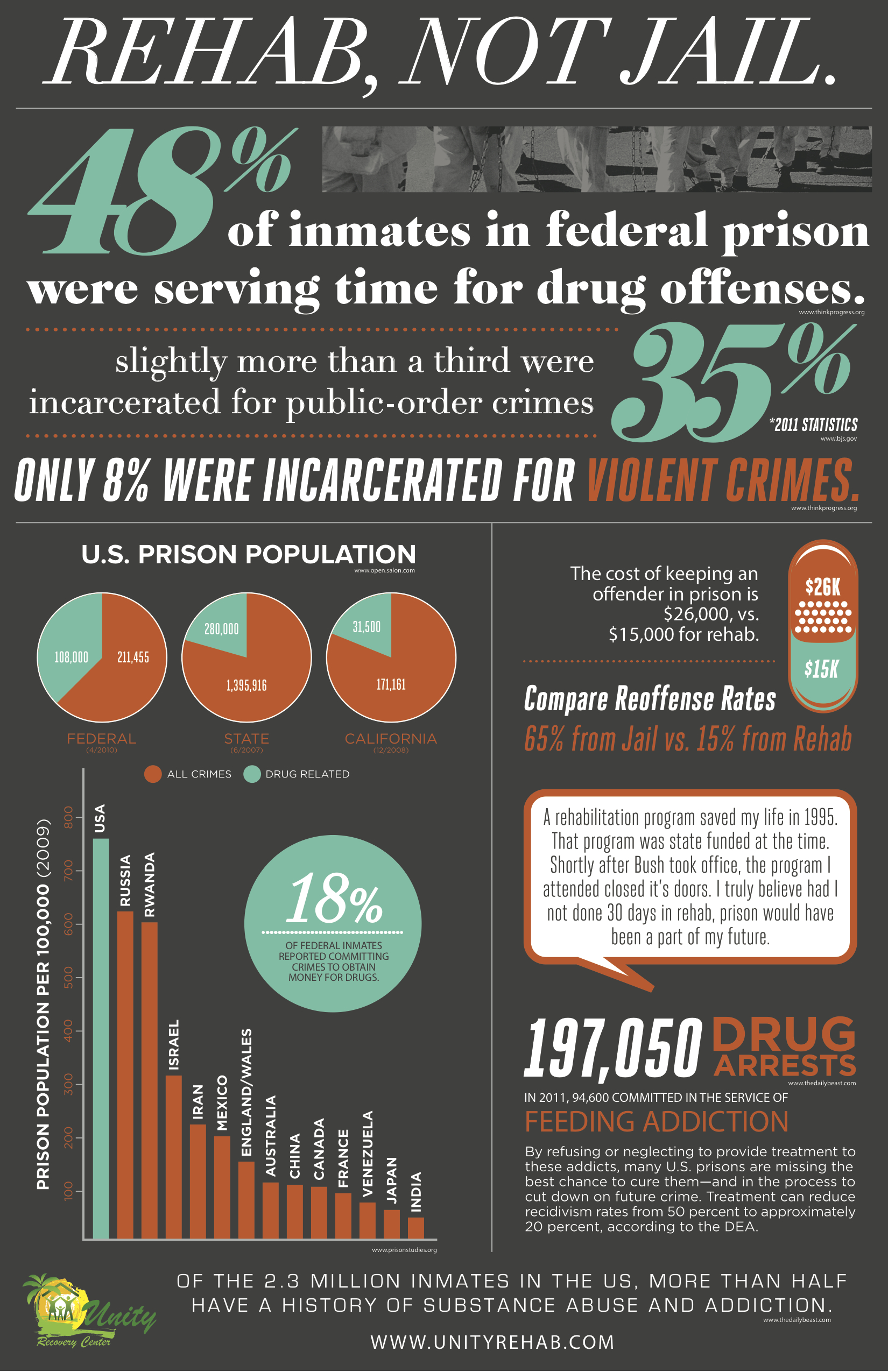The Importance Of Aftercare In Alcohol Rehabilitation Centers

Content by-Mcpherson Winkler
Are you prepared to take the next step in the direction of a much healthier and also sober life?
The trip through alcohol rehab facilities is a critical initial step in getting rid of addiction. However, it is very important to remember that the roadway to recovery doesn't end there.
The value of aftercare in alcohol rehab facilities can not be overemphasized. It is the crucial to improving your lasting recovery as well as preventing regression.
After finishing a rehab program, you might feel a sense of accomplishment and also newly found strength. However without the correct assistance and also assistance, the obstacles of keeping sobriety can be frustrating.
That's where aftercare can be found in. It offers you with the devices, sources, and ongoing support you require to browse the ups and downs of life after rehabilitation. Through a combination of counseling, support system, as well as continuous therapy, aftercare assists you construct a solid foundation for your recovery journey.
So, twist up as well as prepare to discover the importance of aftercare in alcohol rehabilitation centers, due to the fact that your trip to lasting soberness has actually simply started.
Enhancing Long-Term Recuperation
Enhancing long-lasting recovery resembles growing seeds in a yard, where aftercare in alcohol rehabilitation facilities acts as the nurturing sunshine as well as water to help those seeds grow into solid, durable plants.
After finishing the preliminary therapy program, aftercare plays an important function in keeping sobriety and stopping relapse. It offers recurring assistance, guidance, as well as resources to individuals as they change back to their daily lives.
One key element of aftercare is the application of regression avoidance strategies. With specific counseling sessions and also support groups, individuals learn coping systems and also tools to handle triggers and cravings. They're equipped with the essential skills to navigate tough situations and manage tension without considering alcohol.
This continuous assistance assists people stay committed to their sobriety trip as well as prevent falling back right into old patterns.
Additionally, aftercare in alcohol rehabilitation centers offers a sense of neighborhood as well as connection. Going to normal support system conferences permits people to share their experiences, obstacles, and successes with others that recognize their battles. This feeling of belonging and also support can be exceptionally empowering and also guaranteeing. It advises people that they're not alone in their journey which there are others who have encountered similar obstacles as well as overcame them.
Aftercare in alcohol rehab centers is essential for improving long-term healing. It gives the needed support, tools, and neighborhood for people to maintain their soberness and protect against relapse. By nurturing individuals' progression and offering recurring assistance, aftercare ensures that the seeds of recovery continue to grow and also thrive right into a healthy and balanced, meeting life.
Stopping Regression
In order to preserve soberness, it's critical for you to proactively take part in regression avoidance strategies post-treatment. Stopping relapse is a continuous process that calls for effort as well as dedication.
Here are three vital approaches to assist you remain on track:
1. Develop a strong assistance network: Border yourself with people who recognize and support your trip in the direction of soberness. This can include your family, friends, and support groups. Having a network of individuals who are there for you during challenging times can make a considerable distinction in protecting against relapse.
2. Create healthy coping devices: It is very important to discover healthy methods to handle anxiety, causes, and food cravings. This can include exercising mindfulness techniques, engaging in regular exercise, or pursuing hobbies and rate of interests you delight in. By finding positive electrical outlets for your emotions, you can prevent counting on alcohol as a coping device.
3. Create a regression prevention plan: Collaborate with your therapist or counselor to create a relapse avoidance strategy customized to your details demands and also activates. This strategy needs to include approaches for determining indication, managing food cravings, and also seeking assistance when needed. By having a strategy in place, you'll be better furnished to browse challenging scenarios as well as remain on the path to lasting healing.
Bear in mind, avoiding relapse is a constant journey that requires self-awareness, commitment, and recurring support. By proactively participating in relapse prevention techniques, you can enhance your chances of keeping soberness and also leading a healthy, fulfilling life.
Navigating Obstacles of Reintegration
When you reintegrate into culture after completing therapy, browsing the challenges of reintegration can seem like tipping onto a facility as well as strange path. You may have created brand-new coping systems as well as skills throughout your time in rehabilitation, however applying them in the real world can be discouraging.
Among the largest difficulties you might deal with is handling triggers and also temptations that can cause regression. It's important to keep in mind that you're not alone in this trip. Reach out to your assistance network, whether it's friends, family members, or fellow recouping addicts, that can give support and also understanding throughout this tough time. They can aid you identify prospective triggers as well as develop methods to cope with them, such as avoiding particular places or situations, locating healthy and balanced options to deal with stress and anxiety, and practicing self-care.
One more challenge of reintegration is restoring partnerships that may have been strained or damaged because of your dependency. It prevails to really feel a mix of emotions, including sense of guilt, embarassment, and worry, when reconnecting with enjoyed ones. It's important to come close to these conversations with sincerity, humility, and a willingness to make amends.
Keep in mind that rebuilding depend on requires time and regular effort. Endure yourself as well as those around you as you work in the direction of fixing and reinforcing these relationships. In addition, consider looking for professional help from therapists or therapists that concentrate on addiction healing and family members treatment. They can supply advice as well as assistance as you navigate the complexities of rebuilding relationships as well as developing much healthier communication patterns.
Verdict
To conclude, aftercare is an important part of alcohol rehab centers, as it plays a pivotal role in improving long-term healing and also preventing regression. By supplying ongoing assistance and assistance after the initial therapy, aftercare programs make certain that people have the necessary tools to navigate the difficulties of reintegration into culture.
Envision a sailboat embarking on a journey across the vast sea. The preliminary rehab treatment acts as the solid wind that drives the boat onward, helping it sail away from the stormy waters of addiction. Nevertheless, without appropriate aftercare, the boat risks losing its method as well as getting captured in the treacherous currents of relapse. Aftercare work as the compass, guiding the watercraft in the direction of safe harbors and also aiding it remain on training course towards lasting soberness.
Information supports the effectiveness of aftercare programs in sustaining recovery. Research studies have shown that people that join aftercare are more probable to preserve abstinence and also experience boosted general well-being compared to those that do not get continuous assistance. This data underscores the significance of aftercare in protecting against relapse and promoting long-lasting recovery.
By supplying https://www.governor.nd.gov/news/first-lady-speak-2022-rx-and-illicit-drug-summit-deliver-hazelden-betty-ford-commencement of care, aftercare programs ensure that individuals have access to support networks, therapy sessions, as well as sources that attend to the challenges they might experience post-rehab.

